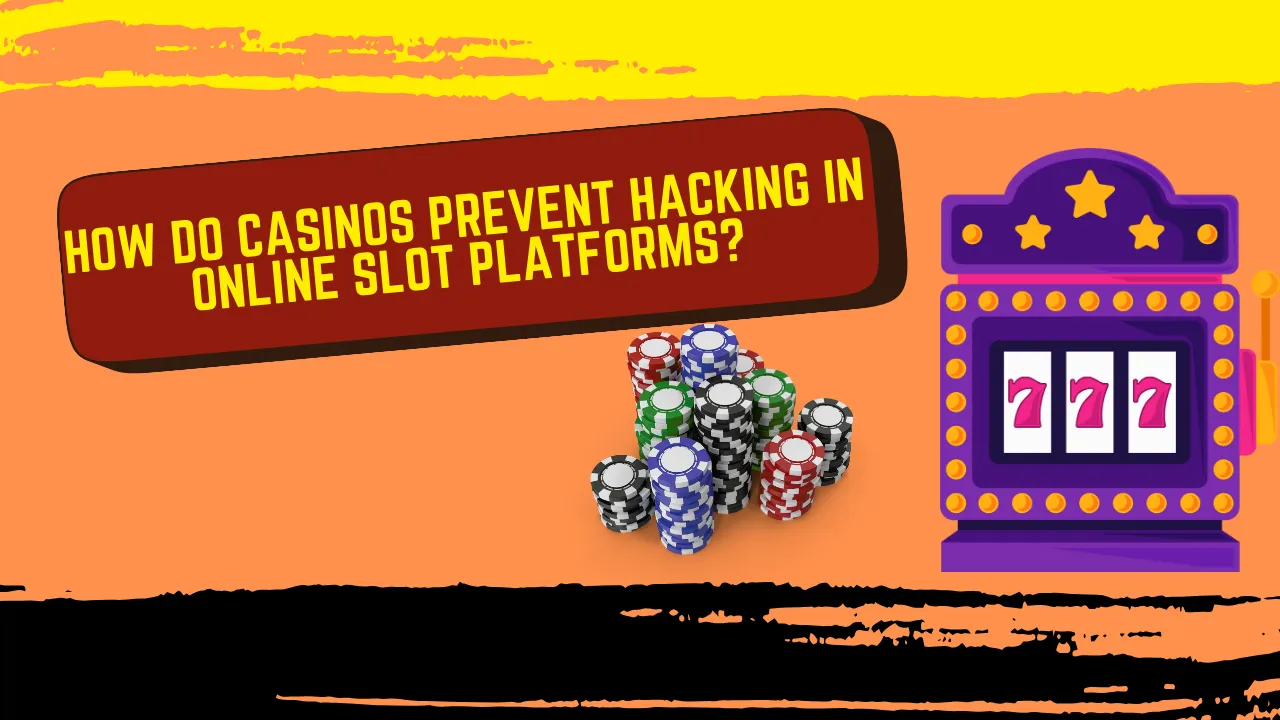The online casino industry has exploded in popularity over the past decade, with millions of players logging in daily to spin the reels, try their hand at blackjack, or participate in poker tournaments. But with this growth comes an equally pressing challenge: cybersecurity. For casinos, protecting their platforms from hackers is just as important as offering a smooth and engaging gaming experience. Players want to trust that their deposits, personal information, and game fairness are secure.
From my own perspective researching the iGaming industry, I’ve seen how security isn’t just about blocking obvious threats. It’s about staying several steps ahead of hackers who are constantly looking for loopholes. So, how exactly do casinos prevent hacking in their online slot platforms? Let’s take a closer look.
The Foundation: Encryption and Secure Transactions
At the heart of every secure online casino is encryption technology. Secure Socket Layer (SSL) or its modern version, Transport Layer Security (TLS), ensures that every piece of data transferred between the player and the casino server is unreadable to outsiders. This includes login credentials, payment information, and even in-game actions.
When I explored comparisons across different gaming platforms, I noticed that casinos offering both slot games and poker integrate encryption seamlessly. This is especially evident on platforms similar to uk poker sites where trust and fairness depend heavily on secure data transfers. For online slot platforms, strong encryption prevents hackers from intercepting or altering information mid-stream, a common risk in less-protected digital environments.
Firewalls and Intrusion Detection Systems
Beyond encryption, online casinos rely heavily on firewalls and intrusion detection systems (IDS). A firewall acts as the gatekeeper, monitoring incoming and outgoing traffic and blocking anything that looks suspicious. IDS solutions, on the other hand, dig deeper into the network to spot unusual patterns that could indicate an ongoing attack.
For instance, if an attacker tries to flood the casino server with fake traffic in a Distributed Denial of Service (DDoS) attack, these systems can quickly identify and isolate the threat. Players often don’t even notice these behind-the-scenes defenses at work, but they are crucial in keeping the platform accessible and stable.
Random Number Generators and Fairness Protection
Hackers don’t just aim for financial data; many try to exploit game algorithms to gain an unfair advantage. This is why Random Number Generators (RNGs) are critical in online slot platforms. RNGs ensure that every spin is independent and unpredictable, just like in a real casino.
Casinos prevent tampering with RNGs by using third-party auditing agencies. These independent firms regularly test and certify the algorithms to ensure they can’t be manipulated. Without this safeguard, trust in the fairness of online slots would collapse. The reliance on independent audits shows casinos understand that protecting game integrity is as important as protecting financial transactions.
Multi-Factor Authentication and Account Protection
User accounts are another prime target for hackers. To address this, casinos increasingly adopt multi-factor authentication (MFA). Instead of relying on just a username and password, MFA adds extra steps such as one-time codes sent to a phone or email.
From a player’s standpoint, this might feel like an added step, but it significantly reduces the risk of unauthorized access. Even if hackers manage to steal login credentials, they would still need access to the second authentication layer, making it much harder to breach accounts.
Continuous Monitoring and AI-Based Security
Modern online casinos go beyond static defenses by incorporating artificial intelligence and machine learning into their security systems. These technologies analyze player behavior in real time, looking for anomalies that might indicate fraudulent activity.
For example, if a player’s account suddenly logs in from two distant countries within minutes, AI-driven systems can flag the account and temporarily freeze activity until the player verifies their identity. This proactive approach makes it increasingly difficult for hackers to bypass detection.
Regular Security Audits and Licensing Requirements
Casinos that operate legitimately also undergo strict licensing requirements from regulatory authorities. Licensing bodies such as the UK Gambling Commission or the Malta Gaming Authority mandate regular security audits. These audits cover everything from encryption practices to game fairness and payment systems.
Audits not only keep casinos compliant but also help identify potential vulnerabilities before hackers can exploit them. This external layer of oversight reinforces the trust players place in these platforms, knowing that regulators are also watching closely.
The Human Element: Training and Awareness
Technology alone isn’t enough to stop hacking. Casino staff play a vital role in maintaining security. Employees receive training on how to identify phishing attempts, social engineering tactics, and other methods hackers use to bypass digital defenses.
Hackers often try to exploit human error — for example, by tricking an employee into revealing login credentials. By building a culture of cybersecurity awareness, casinos ensure their defenses extend beyond software and hardware.
Responsible Gaming Meets Cybersecurity
Interestingly, many of the same tools that prevent hacking also support responsible gambling. Spending limits, time-out options, and account verification processes are not only safeguards against addiction but also help verify genuine user activity. This dual purpose makes these systems even more valuable to both casinos and players.
From my observations, the most successful platforms are those that integrate cybersecurity and player protection holistically. When security feels seamless, players enjoy the games without worrying about their data or money being compromised.
Looking Ahead: The Future of Casino Security
Hackers will never stop evolving, and casinos know this. Future defenses will likely involve blockchain technologies for transparency, biometric verification for identity protection, and even quantum encryption as the industry pushes the boundaries of cybersecurity.
Players, too, will need to stay vigilant, adopting strong passwords, using secure networks, and taking advantage of multi-factor authentication when offered. While casinos carry the bulk of the responsibility, cybersecurity is a shared effort between operator and customer.
Conclusion
Casinos prevent hacking in online slot platforms by layering multiple defenses — encryption, firewalls, RNG audits, multi-factor authentication, and continuous monitoring. But perhaps the most important takeaway is that security isn’t a one-time fix; it’s an ongoing process.
As online gambling continues to grow, casinos that prioritize cybersecurity not only protect their business but also build lasting trust with their players. The next time you spin the reels or join a table online, remember the invisible shield of technology and training working tirelessly behind the scenes to keep you safe.




